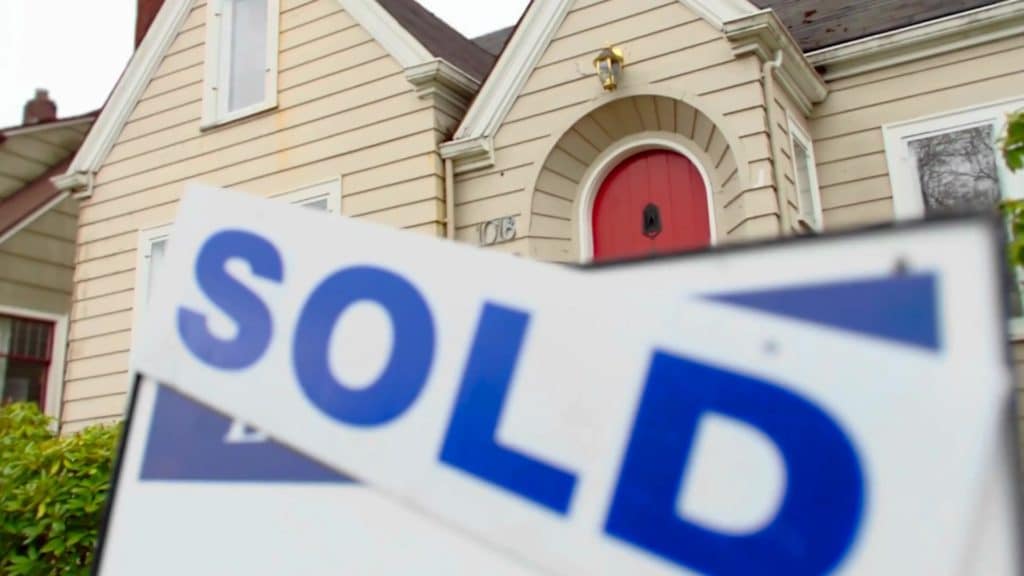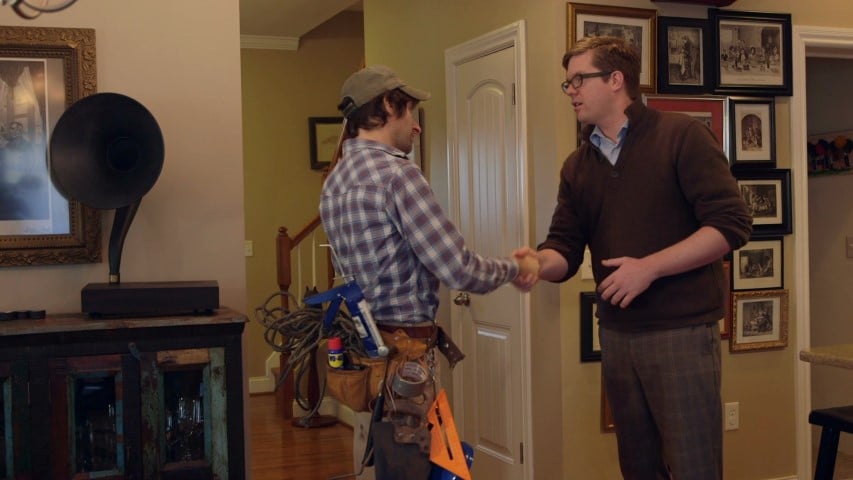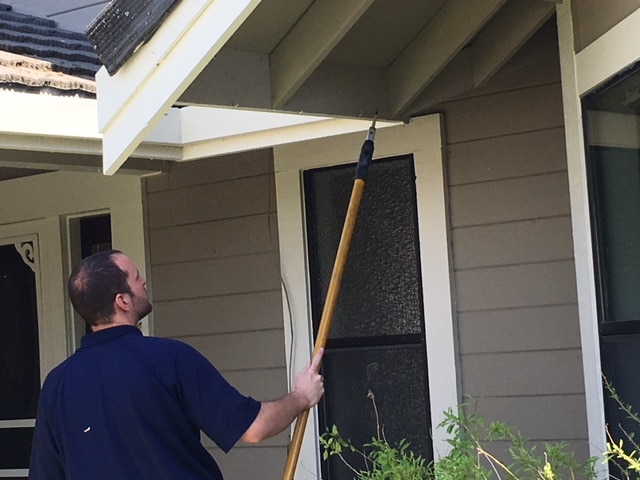The Definition and Process of Probate

Probate is the process of distributing a deceased person’s property and estate after they die.

In general, this process is governed by the decedent’s will and appointed executor. If they die without a will, however, a probate court will appoint an executor (i.e. a public administrator) to handle the probate process instead.
While the probate process varies by state, most states have done their best to make it a simple one. However, that doesn’t mean that you’ll automatically be an expert in probate if this is your first time handling it!
Let’s look at the probate process in the Tri-Valley, California, and how you can simplify the process of selling probate real estate.
How Does Probate Work?
Most people create either a Living Trust or a Last Will and Testament to disburse their belongings when they die.

A Living Trust technically “owns” whatever items are named in it while the live owner gets to act as the manager of those belongings.
When they die, the items immediately go to the trustee, bypassing probate entirely.
If, however, a deceased person created only a will, their entire estate must go through the probate process. If this occurs, you will need to speak with an attorney about going through probate with you to ensure you don’t miss any aspects of the process.
How Long Does the Probate Process Take?
The probate process could last for 6 months or longer.

The time of the process depends on how much property must be distributed, whether the probate court has to appoint a public administrator (because the decedent did not designate an executor), how much authority the public administrator or executor has, and other factors.
The probate process is much easier if the decedent downsized to a smaller home and created an organized list of beneficiaries and belongings before their death. However, this is not required of any individual, so the probate process may be more challenging for you.
What Happens During Probate in the Tri-Valley?
Typically, the probate court will determine how assets are distributed after a person’s death.

If you are the executor named by the decedent, you are responsible for disbursing their assets as the court rules. You’ll usually be responsible for:
- Filing a “Petition for Probate.”
- Filing other forms and sending formal notices to beneficiaries and family members.
- Finding the witnesses to the will to certify the will is accurate before the court.
- Inventorying the estate.
- Paying off any of the decedent’s outstanding debts.
- Setting up a tax ID and bank account for the estate and paying any final income and estate taxes for the decedent.
- Seeking court permission to disburse remaining assets to the decedent’s beneficiaries.
As an executor, you may have full authority to handle all details of distribution or you may have limited authority which would require you to submit to the court’s approval before you take any step to distribute property. As you can imagine, limited authority lengthens the time of the probate process.
This is a basic outline of what the probate process is. Again, make sure you speak with an attorney before starting the process to ensure that you don’t miss crucial steps or laws found in California’s probate code.

Selling Real Estate in Probate
So, if you’re an executor and must get rid of the decedent’s real estate, what do you do? There are a few steps to take as you prepare to sell real estate in probate.
1. Find a Probate REALTOR®
Before you start the process of selling probate real estate, it’s important to find a REALTOR® who can help you sell this real estate the right way. You’ll want an agent who is both experienced in the process of selling probate real estate and good at marketing probate homes.

There are aspects of probate listings that make them more challenging than typical real estate listings. For example, the probate court may set a specific timeline that you and your REALTOR® will need to follow.
In addition, a REALTOR® will likely need to make a note in the MLS listing indicating that the home is in probate so that the buyer’s real estate agent can include that when writing up the buyer’s agreement.
There are several steps to follow before you can actually get into the process of selling probate real estate, including notifying the court of the sale and getting the court’s approval. Speak with a real estate agent as soon as you can to get the process started.

2. Prepare To Sell the Probate Home
Now that you have a real estate agent to work with, you’ll need to set a plan for selling your probate home. In general, a REALTOR® will ask you how you want to sell the home:
- As-is, just with all items cleaned out.
- After a few minor repairs.
- After a major remodel to important spaces like the kitchen and bathroom.
Before you decide, you’ll probably need to order a prelim report and set up property inspections.

The Prelim Report
The prelim report will showcase any areas where the property has an encumbrance or a lien. Liens exist if the home is still on loan, if the decedent owes some type of property taxes, or if there are any debts to a contractor or someone else who wasn’t paid for their services to the home and land.
Any good homebuyer will want to know about liens—which can also affect the home value—so getting this report is important. You may want to consider settling liens before listing your probate home for sale.

Property Inspections
In general, you will order three main inspections on the property:
Homebuyers want to know if there are any significant issues with the home’s HVAC systems, plumbing, insulation, etc. They will also want to know of any termite issues or weak spots in the roof.
The property inspections you order will likely show you if there are areas that you need to fix before you can actually sell the home.
3. Clean and Repair
Once you order the prelim report and property inspections, you should have a clear idea of what types of repairs you’d like to make to the property and how much you can list it for when you go on the market.

As you may expect, inspections and any subsequent repairs will cost money. In California, inspections average between $350 and $500, while prelim reports average somewhere between $25 and $125, typically. Then, of course, you must add in the costs for repairs!
If the decedent’s estate doesn’t have the money set aside to deal with these reports and repairs or you can’t afford it, you can find inspectors and contractors who will be paid through escrow when the sale of the home closes. Your REALTOR® should be able to help you connect with these individuals.
Once you’ve got your inspections and reports out of the way, you’ll want to either hire someone to help clean out your home or do it yourself. Then, you’ll need to decide what repairs you want to make.
If you find out there are minor issues like faulty windows, a broken water heater, a dying dishwasher, etc., you’ll probably want to make repairs to those items to make it easier for buyers to want to buy the probate home.
4. Execute Your Plan
As soon as the probate court approves your plan to sell the home, it’s time to get going!

Start executing the plan you created initially. This will likely include steps such as:
- Cleaning out all personal items with other family members.
- Creating a list of which items go to which family member (and ensuring that’s okay with each member involved!).
- Cleaning the home.
- Scheduling minor repairs.
- Contacting an estate company to set up an estate sale.
- Making a plan to take anything not sold in the estate sale to a donation center.
- Deep clean and, if desired, stage the home for the photos for the MLS.
It’s important to note that the probate court in the Tri-Valley area must also approve any sale you make. Usually, the court allows potential buyers to bid on a probate home during an open hearing. The court will supervise the bidding and confirm the winner. Then, you can continue with the sale process.

Are You Ready To Sell Your Probate Home?
If you’ve made it this far, you are probably ready to sell your probate home. All that’s left to do now is start implementing the steps above! Be sure to find an experienced probate attorney and a probate REALTOR® to aid you in this process.
If you have any questions, don’t hesitate to reach out to me! I would be happy to help you navigate the often confusing process of selling probate real estate in the Tri-Valley area.
——————————————————————————————————————–
🏚️Get Warren’s Top Tri-Valley Homes under $$$ (Includes condos, Townhomes and single family) 🏠
- 🏡PLEASANTON ($1.4M)
- 🏡LIVERMORE ($800,000)
- 🏡DUBLIN ($1.2)
- 🏡SAN RAMON ($1.3)
- 🏡DANVILLE($1.4)
- 🏡ALAMO ($2M)
Hello…I work with both buyers and sellers in the Northern California area.
My real estate spans from the East Bay (Tri-Valley) to the Greater Sacramento areas.
If you would like to know more about the Tri-Valley area, please read: “Everything you need to know about the Tri-Valley area”
To better understand what each city has to offer, I have created a Pros and Cons videos and articles for each Tri-Valley Area:
If you are thinking about purchasing or selling a home, please reach out to me by text, phone, or email. If it is convenient, I can schedule a Zoom chat so we can discuss your home goals. Wishing you all the best on your home journey. Cheers!
eXp Realty
(925) 980-4603
DRE # 01861944
ALL MATERIAL PRESENTED HEREIN IS INTENDED FOR INFORMATIONAL PURPOSES ONLY. THE INFORMATION CONTAINED HEREIN HAS BEEN OBTAINED THROUGH SOURCES DEEMED RELIABLE BUT CANNOT BE GUARANTEED AS TO ITS ACCURACY. SUBJECT MATERIAL MAY HAVE ERRORS, OMISSIONS, CHANGES OR WITHDRAWAL WITHOUT NOTICE. ANY INFORMATION OF SPECIAL INTEREST SHOULD BE OBTAINED THROUGH INDEPENDENT VERIFICATION.











